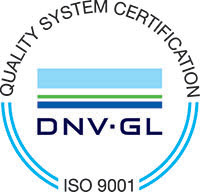What is Stainless Steel Passivation?
Stainless passivation is the process by which stainless steel will spontaneously form a chemically inactive surface when exposed to air or other oxygen-containing environments. Some important facts to know when considering passivating stainless steel:
- Steels containing more than 11% Chromium are capable of forming an invisible, inert or passive, self-repairing oxide film on their surface. It is this passive layer that gives stainless steels their corrosion resistance.
- If a stainless steel surface is scratched, then more Chromium is exposed which reacts with oxygen allowing the passive layer to reform. However, if a particle of carbon steel is embedded in the scratch then the passive layer cannot reform and corrosion will occur when the metal is wetted or exposed to a corrosive environment.
- Stainless passivation is the chemical treatment of a stainless steel surface with a mild oxidant such as citric acid passivation solution. This process is to accelerate the process noted above in No. 1.
- Passivating stainless steel is the removal of exogenous iron or iron compounds from the surface by means of a chemical dissolution, most typically by a treatment with an citric acid passivation solution that will remove the surface contamination but will not significantly affect the stainless steel itself.
- Passivation also is accomplished by stainless steel electropolishing. Electropolishing is an electrochemical process that is a super passivator of stainless steel and results in a more passive surface than the other methods mentioned above.
This last step is necessary because during handling and processing such as rolling, forming, machining, pressing, tumbling, and lapping, particles of iron or tool steel or abrasive particles may be embedded in or smeared on or into the surfaces of stainless steel components. If allowed to remain, these particles may corrode and produce rust spots on the stainless steel. This is due to the formation of a galvanic couple between two dissimilar metals that can promote a corrosive reaction. To dissolve the embedded or smeared iron and prevent this condition, as well as restore the original corrosion-resistant surface, semi-finished or finished parts are given a 'passivation' treatment.
How Stainless Steel is Passivated
The passivation of stainless steel is performed when free iron, oxide scale, rust, iron particles, metal chips or other nonvolatile deposits might adversely affect the metallurgical or sanitary condition or stability of the surface, the mechanical operation of a part, component or system, or contaminate the process fluid. Stainless steel is passivated through a cleaning cycle to remove oils, grease, compounds, lubricants, and residue followed by a nitric or a citric acid bath or a by an oxidant that removes free iron and contaminates.
Passivation is performed on clean stainless steel, providing the surface has been thoroughly cleaned or descaled. Since the term "passivation" is used to describe distinctly different operations or processes relating to stainless steels, it is necessary to define precisely what is meant by passivation.
Stainless Passivation Specifications in use at Delstar:
- ASTM A 967, Chemical Passivation Treatments for Stainless Steel Parts
- ASTM A 380, Standard Practice for Cleaning, Descaling, and Passivation of Stainless Steel Parts, Equipment and Systems
- Federal Specification QQ-P-35C, Passivation Treatments for Corrosion Resistant Steels
- ASTM B 912, Passivation of Stainless Steels Using Electropolishing
ASTM A380 Passivation
Delstar Metal Finishing maintains high standards in stainless steel passivation, meeting the ASTM A380 standards. ASTM A380 passivation standards include best practices for the cleaning, surface finishing (descaling) and passication processes. The required finish for the ASTM A380 standards allows for different processes and operations to achieve the finish as long as they are performed to the industry standard. Testing includes wipe and high humidity tests, iron free tests, and more.
Delstar is the industry leader in stainless steel passivation services, delivering the highest quality of passivated products to our customers since 2002. Here at Delstar Metal Finishing, we offer stainless steel passivation services with a focus on ASTM A967, ASTM A380, ASTM B912, and QQP35C specifications. Call or contact us today to speak to a Delstar specialist about stainless steel passivating.
 Delstar
Delstar
